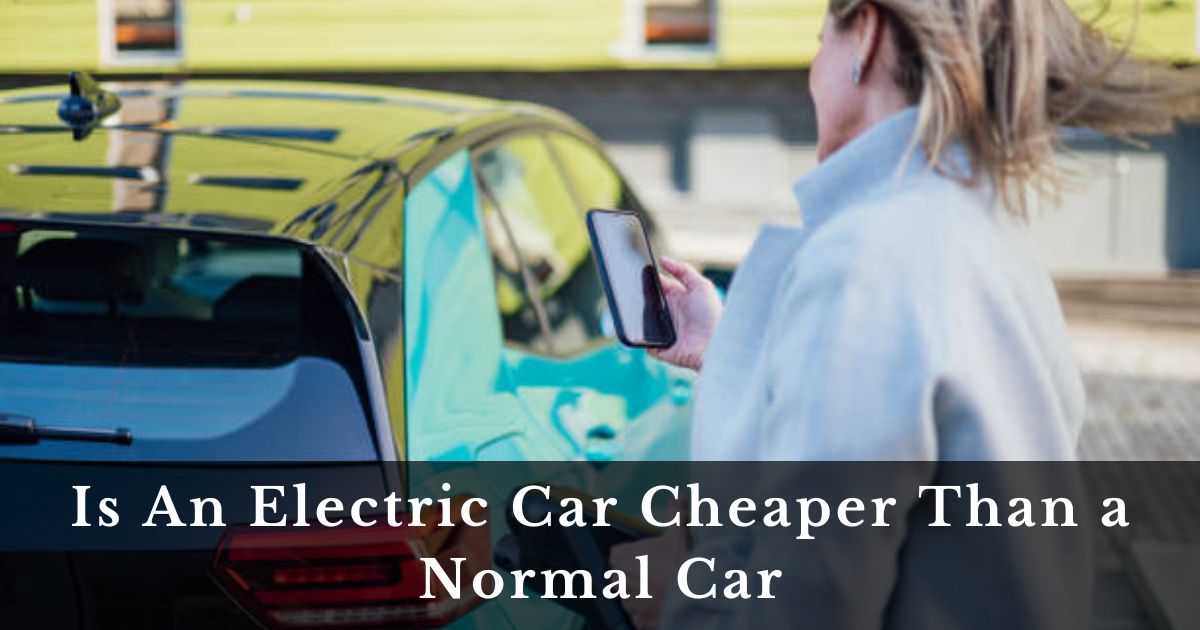Is An Electric Car Cheaper Than a Normal Car, These days, lots of folks are thinking about switching to electric cars because they’re good for the environment and can save money. But one big question people have is: are electric cars cheaper than regular gas cars? Let’s take a closer look to find out if going electric really saves you cash.
If you’re considering buying a car, one question that may pop into your mind is whether an electric car is cheaper than a traditional gasoline-powered one. Let’s break it down in simple terms.
Introduction to Electric Cars
Electric cars, also known as electric vehicles (EVs), run on electricity stored in batteries. Instead of relying on gasoline or diesel fuel, they use electric motors to power the vehicle. Electric cars have been gaining popularity due to their eco-friendly nature and advancements in technology.
Cost Comparison: Electric vs. Gasoline Cars
Initial Purchase Cost
One of the primary concerns for many car buyers is the initial cost. Electric cars often come with a higher price tag upfront compared to their gasoline counterparts. However, this difference is gradually decreasing as technology advances and production scales up.
Maintenance and Repair Costs
Electric cars typically have fewer moving parts than traditional cars, resulting in lower maintenance and repair costs over time. They don’t require oil changes or as many engine-related repairs, saving owners money in the long run.
Fuel Costs
One significant advantage of electric cars is their lower fuel costs. Electricity is generally cheaper than gasoline, making it more cost-effective to operate an electric vehicle, especially as gas prices fluctuate.
Tax Incentives and Rebates
Many governments around the world offer incentives and rebates to encourage the adoption of electric vehicles. These incentives can include tax credits, rebates on the purchase price, or exemptions from certain taxes and fees. Taking advantage of these incentives can significantly reduce the overall cost of owning an electric car and make it a more financially viable option.
Factors Influencing Cost Differences
Government Incentives
Many governments offer incentives to encourage the adoption of electric vehicles. These incentives can include tax credits, rebates, and reduced registration fees, making electric cars more affordable for consumers.
Battery Life and Replacement
The cost of battery replacement is a significant factor in the overall cost of owning an electric car. However, advancements in battery technology are extending battery life and reducing replacement costs over time.
Charging Infrastructure
Access to charging infrastructure can affect the cost of owning an electric car. Areas with more charging stations make it easier and more convenient for electric car owners to charge their vehicles, reducing the overall cost of ownership.
Environmental Impact
Emissions Comparison
Electric cars produce zero tailpipe emissions, making them environmentally friendly compared to gasoline cars, which emit harmful pollutants into the atmosphere.
Renewable Energy Considerations
Charging an electric car with renewable energy sources such as solar or wind power further reduces its environmental impact and overall cost of ownership.
Long-term Savings Potential
Total Cost of Ownership
When considering the total cost of ownership, including purchase price, maintenance, fuel, and incentives, electric cars can be more cost-effective than traditional cars over the long term.
Resale Value
Electric cars often have higher resale values than gasoline cars due to their lower maintenance costs and increasing demand for eco-friendly transportation options.
In conclusion, electric car cheaper than a regular car? The answer depends on various factors, including the initial purchase price, operating costs, incentives, and environmental considerations. While electric cars may have a higher upfront cost, they can offer long-term savings in fuel and maintenance expenses, along with potential incentives and rebates. Ultimately, whether an electric car is cheaper for you will depend on your individual circumstances and priorities. However, considering the evolving automotive landscape and the growing emphasis on sustainability, electric vehicles are increasingly becoming a compelling and cost-effective option for many drivers.



